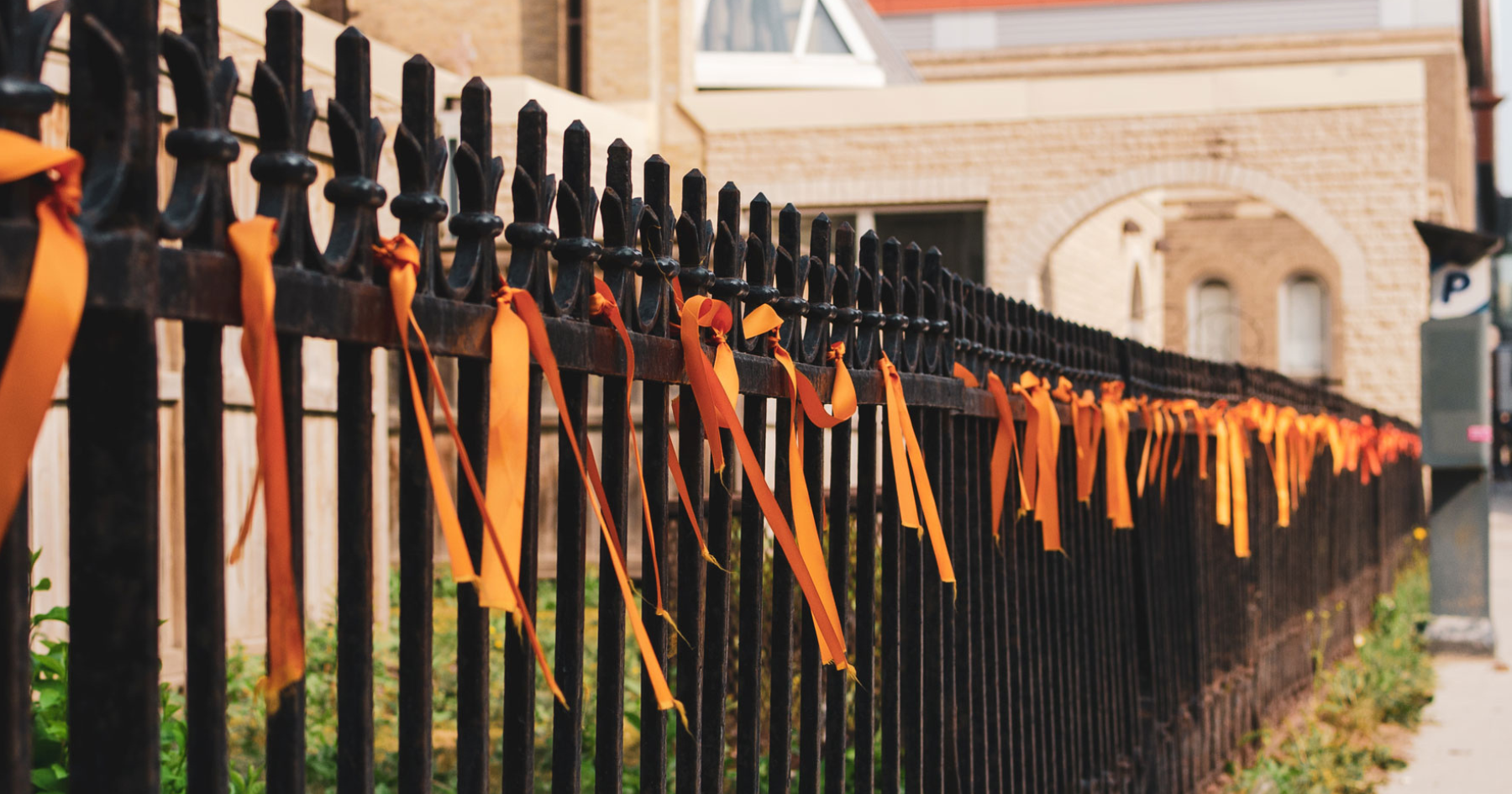Between 1865 and the turn of the millennium, 699 federally-funded day schools operated in almost every Indigenous reserve across Canada. Unlike at residential schools, students went home at the end of the day. However, as with residential schools, the goal was cultural assimilation — to “kill the Indian in the child” — and many of the roughly 200,000 First Nations, Inuit and Métis children forced to attend suffered abuse.
While day schools were funded by the federal government, they were owned and operated by Roman Catholic, Anglican, Presbyterian, Methodist and United churches. One such school was St Michael’s in Alert Bay, which the Anglican Diocese of British Columbia began operating as a day school in 1878.
While a 2006 agreement provided compensation to Survivors of residential schools, no such compensation was forthcoming for day school Survivors. In 2009 Garry McLean, who passed away in 2019, and others initiated the Federal Indian Day School Class Action. After several years in legal limbo, in 2019, the Federal Court approved a settlement agreement, which allowed Survivors and their family members to submit claims for compensation.

Survivors could apply to have their claim assessed at five levels, depending on the type of abuse they suffered. At the lowest claims level, Survivors received $10,000, while for the highest level they could receive up to $200,000. Of the over 180,000 claims submitted, around three-quarters were for the lowest level of compensation — a fact some believe shows that the process for higher-level claims was too demanding.
The deadline for submitting claims passed in January 2023. However, calls have been growing, from Survivors, their families and MPs, to reopen the settlement agreement. Marvin Underwood, a parishioner of Holy Trinity, Saanich, is one of those Survivors calling for the claims process to be overhauled, on the grounds that it is “discriminatory and re-traumatizing.”
Marvin attended Tsartlip Indian Day School on the Tsartlip First Nation reserve for eight years. He also attended St Mary’s Indian Residential School in Mission, BC, and spent time at the Indian Hospital in Nanaimo. He says the impacts on his life have been “countless.” Trauma and stress have resulted in physical pain that sometimes leaves Marvin needing to use a cane. He requires pain relievers, which he has to pay for out of pocket. Marvin also has an alcohol use disorder, which he says he came by in a legitimate way, as a product of the day and residential school systems.
He describes his experience with the settlement claims process as “quite the ordeal, to put it mildly.”
“I, like other Survivors, have made numerous applications to the federal government’s compensation package since it was first announced in 2020. I contacted Deloitte [the claims administrator] by phone in January 2023 because I hadn’t received acknowledgment of my application. I was told by the person on the phone, ‘That’s not how things are done.’
“I would have to wait until a determination had been made regarding my application. Then I would hear from them. In March of this year, after the third time applying and having my claim level denied, I asked to receive an independent review. I am waiting for a response.”
Marvin feels that not only is the claims process unjust and inequitable, but that it has compounded the emotional and physical trauma he has already experienced.
“Telling our stories leaves applicants open and vulnerable. Then, we wait months, not knowing what is happening. The whole process, and the uncertainty of it all, has taken a toll on me, both medically and emotionally.”
Marvin has witnessed both the church’s and the federal government’s attempts to put reconciliation into action. He says that Stephen Harper’s 2008 residential school apology had a deep impact on him. Marvin also took part in Bishop Logan’s 2016 Sacred Journey. Bishop Logan completed a penitential walk from Alert Bay to Victoria, meeting with chiefs and representatives of the First Nations whose land he passed through along the way. However, Marvin feels that at both the federal and diocesan levels he has been let down.
In 2023, Marvin received the Order of the Diocese of British Columbia , for his work building bridges between his church and Indigenous culture. Shortly after receiving the Order, Marvin contacted the diocese seeking support in his calls on the federal government to overhaul the day school settlement claims process. However, in March of this year, Marvin chose to return his Order, as he felt his call for support had gone unanswered.
“This was not a hasty decision,” says Marvin. “Reconciliation is fragile. All the good work of past efforts can unravel if the church leadership becomes complacent… The lack of support for me from the diocese over the last six months has been very hurtful.”
Faith Tides readers can find the letter Marvin sent to Bishop Anna accompanying his Order, as well as Bishop Anna’s response to Marvin below. You can also read the Bishop’s Column reflecting on these events in this issue. In April, Bishop Anna sent a letter co-signed by Archbishop Linda Nicholls and Archbishop Chris Harper to Gary Anandasangaree, the Minister of Crown-Indigenous Relations, calling on the government to re-open the claims settlement process. Readers can also find that letter in this issue and Bishop Anna is asking that parishioners across the diocese add their voice to this call by writing to Minister Anandasangaree, Prime Minister Trudeau and your local representatives.
Returning the Order and now sharing his story here has taken great strength on Marvin’s part, but he feels it is an important step towards reconciliation.
“I am telling my story here in hopes that Anglicans across our diocese will find meaningful ways to live lives of truth telling and healing, and to follow the path started by Bishop Logan’s 2016 Sacred Journey; a path toward true reconciliation. It may be as simple as writing a letter to your federal MP, as Bishop Anna has done, calling on them to overhaul this unjust, colonial claims settlement process so the Survivors of their Indian day school system can finally find some healing and peace.
“I don’t know what is next for my reconciliation journey with the church. We will just have to take it one step at a time.”
Marvin Underwood letter to Bishop Anna Greenwood-Lee, March 28, 2024
Bishop Anna Greenwood-Lee response to Marvin Underwood, March 28, 2024



